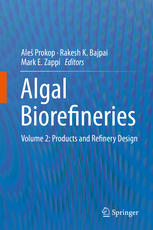

Most ebook files are in PDF format, so you can easily read them using various software such as Foxit Reader or directly on the Google Chrome browser.
Some ebook files are released by publishers in other formats such as .awz, .mobi, .epub, .fb2, etc. You may need to install specific software to read these formats on mobile/PC, such as Calibre.
Please read the tutorial at this link: https://ebookbell.com/faq
We offer FREE conversion to the popular formats you request; however, this may take some time. Therefore, right after payment, please email us, and we will try to provide the service as quickly as possible.
For some exceptional file formats or broken links (if any), please refrain from opening any disputes. Instead, email us first, and we will try to assist within a maximum of 6 hours.
EbookBell Team

4.3
68 reviewsAlgae offer potential to produce renewable chemicals and fuels using solar energy and carbon dioxide from atmosphere or in flue gases while simultaneously reducing the generation of greenhouse gases. Since these can be grown on marginal lands with micronutrients and macronutrients often present in waste streams, algae-based chemicals and fuels do not compete with foods. Still large-scale production of algae-based fuels and chemicals faces considerable technological and economical challenges and it would by necessity require a biorefinery approach wherein all the possible algal components are converted into value-added compounds. The present series on algal biorefineries represents a forum for reporting the state of the art of different technologies as well as the latest advances in this field. The volume II of this series complements the volume I in terms of the current state of the art. Different chapters in this volume address diverse issues ranging from genetically modifies algae to new products to life-cycle analysis of algal products.